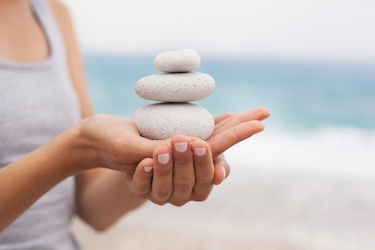Yesterday’s practice involved training your attention to see everything, rather than selectively attending to negative thoughts and emotions. Many mindfulness practices involve directing or controlling our attention in a particular way or on a particular task. For instance, we might eat popcorn and try to notice the crunchy texture without paying attention to the salty flavor. Why would we do this? Because once we are able to direct or control our mind, we can use this skill to ignore thoughts or feelings that are not useful or that have outlived their usefulness. We can use this ability get a break from feelings that are valid and useful but that we need a short break from.
Today’s practice is focused on the experience of gratitude. Scientific research has shown that practicing gratitude is linked to better emotional wellness, reductions in perceived stress and depression, and higher levels of resilience. People who practice gratitude have been shown to have brain changes in studies compared to others, so that the effects of practices like this extend beyond the moments you are actually noticing things you are grateful for providing lasting benefits.
There does not need to be a balance of terrible things in your life with things you are grateful for in order to receive benefits of gratitude. Even connecting with gratitude for a few small things can have significant impact. What are you grateful for? Who are you grateful for? A cup of coffee in the morning? The feeling of putting on clean clothing? Looking at flowers budding in spring? Not just noticing these things, but noting your gratitude and thankfulness for such things is the practice for today. The link below provides an 11 minute guided mindfulness practice for gratitude. If you cannot access it, simply begin the day with a few mindful breaths focused on things you are grateful for.
After your practice, try to experience feeling thankful for anything you find pleasant or supportive today. At the end of the day, reflect on your experience. Was your day any different? How did cultivating moments of gratitude change your experience?
I’m grateful for the large connected web of people who are practicing today together. Older people and youth, those who are away from families-living or working in facilities, colleagues, friends, and people I have not met who are connected because someone shared this practice with them.
Warmest wishes for a pleasant day!
Michele Galietta
























